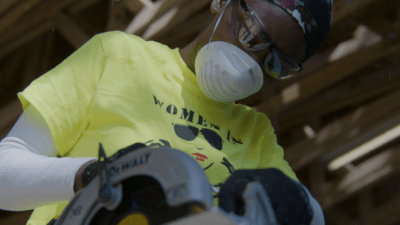This piece was first published on Axios.
If you don’t take proactive steps to champion diversity, equity and inclusion (DEI) at your company, you may miss the boat, according to Carla D. Thompson Payton, vice president for program strategy at the W.K. Kellogg Foundation (WKKF).
Axios publisher Nicholas Johnston recently sat down with Thompson Payton at the 54th World Economic Forum in Davos to discuss what leaders need to know about DEI today.
- First things first: What are some challenges and opportunities for DEI? Why is the foundation engaging on this, and why is it so important?
Thompson Payton: We’ve been in existence since 1930. When Will Keith Kellogg started the foundation, he said do what you will with the money, as long as it focuses on the health, well-being and happiness of children — regardless of race, creed, religion, gender. And we’ve taken that seriously.
- All of our work centers around creating communities where young children thrive and have a future.
Everything that we do is grounded within what we call WKKF’s DNA of racial equity, community engagement and leadership. Because without those three approaches, we don’t feel that we can actually achieve the results that we want for children.
- Okay, but: This is not a new thing. Why now?
Thompson Payton: Why now? Why not? That’s what we say all the time. We want to work in places. We want our communities to have access to resources and opportunities.
- And we recognize that as the world diversifies — and as we have greater recognition of the diversity — that we don’t want to leave opportunity on the table or on the floor.
By 2050, we would have left $8 trillion on the table if we didn’t think about how there are pipelines of people who historically have not been able to access resources and opportunities. We would have been lacking in innovation that we need to create the world that we want.
How do you get to real diversity, equity and inclusion without trust? This is why we brought this message here.
- Key numbers: You brought some data to Davos. What are some key takeaways?
Thompson Payton: We’ve had 100 Fortune 500 companies participate in a program called Expanding Equity — over 600 people going through our core training and ten sectors and industries. What we’ve learned are the three things that every single one of these corporations has focused on with leadership at all levels.
- Working on DEI is not a solo enterprise. Your board needs to be signed on and championing it. Your C-suite needs to be championing it. All your managers and hiring managers need to be practicing it, and your employees need to understand the value proposition.
- It’s not just about the numbers. No one wants to be the only. No one wants to be one of the few. Of the 100 companies that we worked with, 95% of them are focused on belonging, creating opportunities within their corporation for sponsorship. Mentorship is good — sponsorship is even better.
- It’s not one-size-fits-all. No single corporation is doing something that someone else is doing. Figure out your why and then figure out the how, because the how is even more important than the why.
We are releasing a report on ExpandingEquity.com that talks about the case studies of these 100 companies and what they’ve learned, the practices that they put in place and what they hope to achieve.
- An expert take: What is practical advice that you can give leaders from these learnings?
Thompson Payton: The practical advice is you must know why you’re doing it, and you must engage across your corporation so that others understand why. Also, your value proposition is extremely important.
- When you’re trying to build that capacity and the champions internally always ask the why. Why are we doing this? What are we learning? How is it improving?
- Collect your data. You will never be able to answer the why question without the data. And you need to use that data on a regular basis, update it on a regular basis, because it will be the motivating factor that you need. It helps you tell the story and make the case.
- Next steps: What can the leaders attending Davos do to make an impact when they head home?
Thompson Payton: If you’ve never asked the question, start with that. What is it that your employees want to see within your corporation? Ask your leadership. What do we want to be in the sector that we represent? How do we want to be on the leading edge?
- And when you begin asking those questions, and you create open, transparent and honest engagement, folks will tell you the truth. And those nuggets are what you begin to build your strategy.
If you’re reactive, you have missed all the subtle nuances. But if you’re proactive, and you’re creating the time and the space for the conversation, you actually get the footprints of what you need to do.








Comments